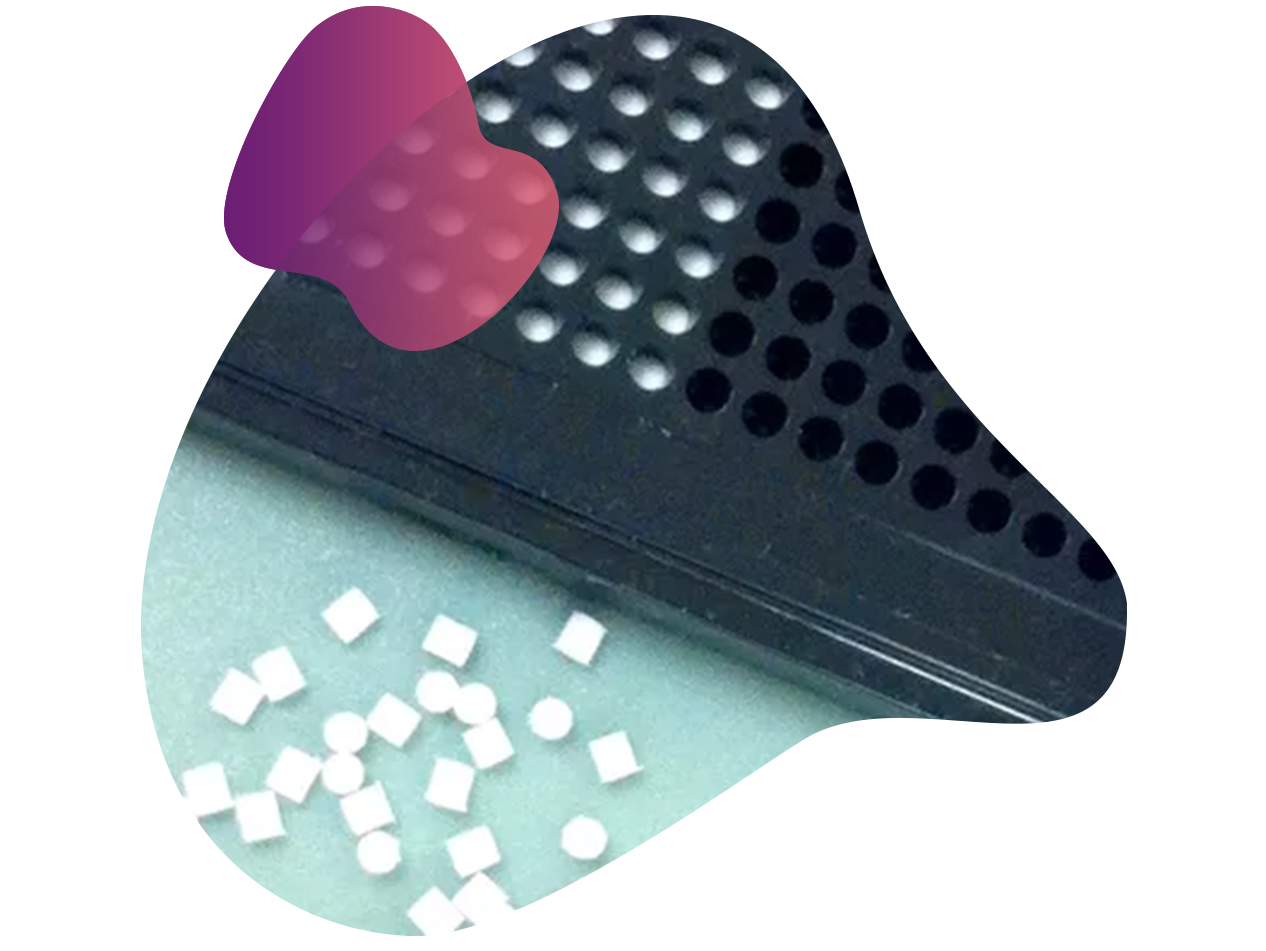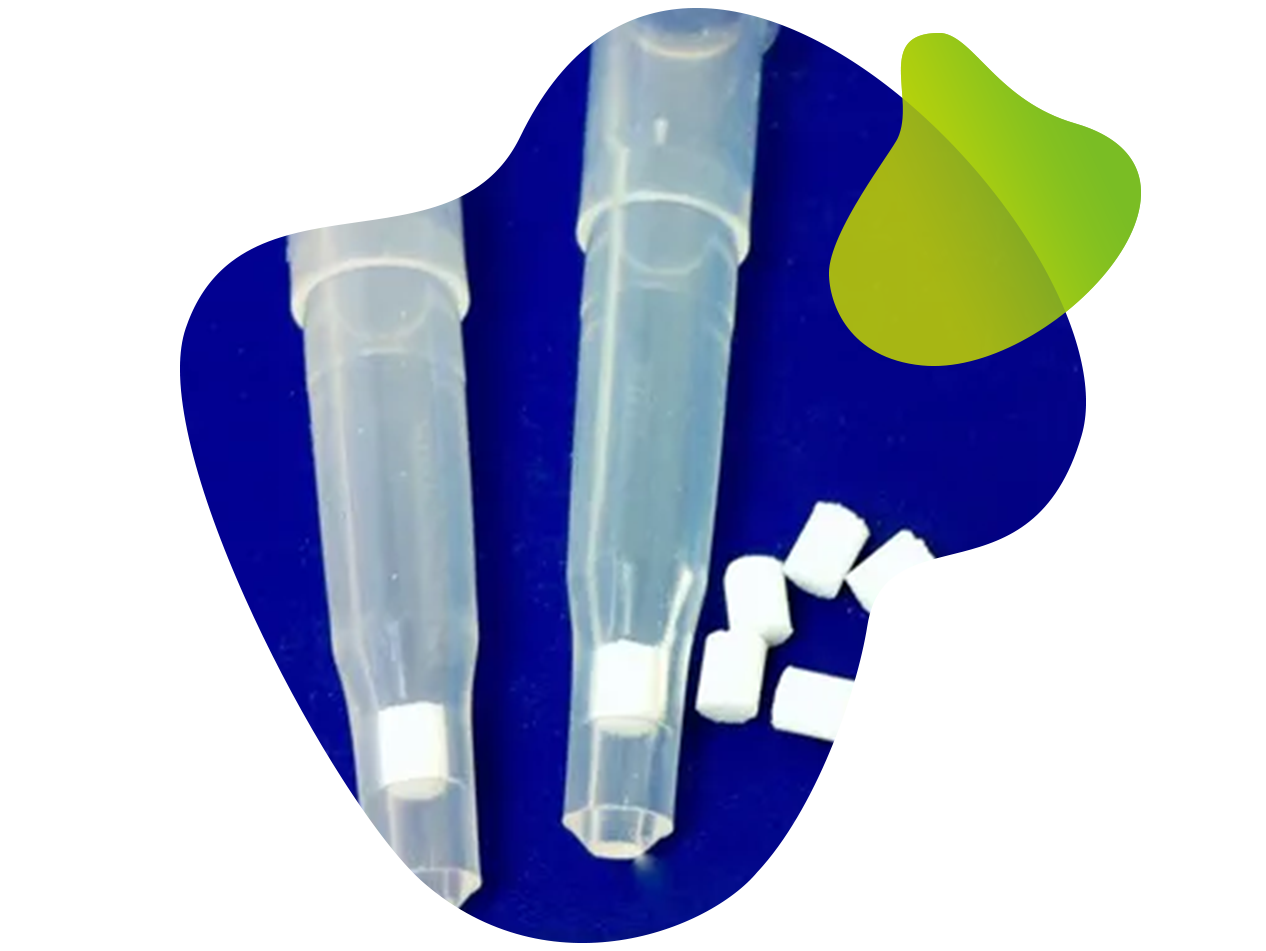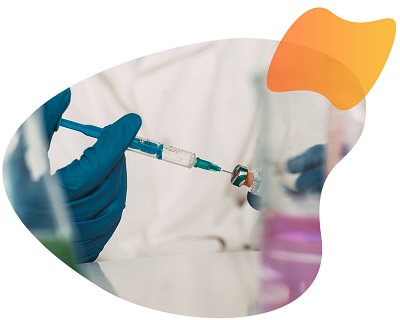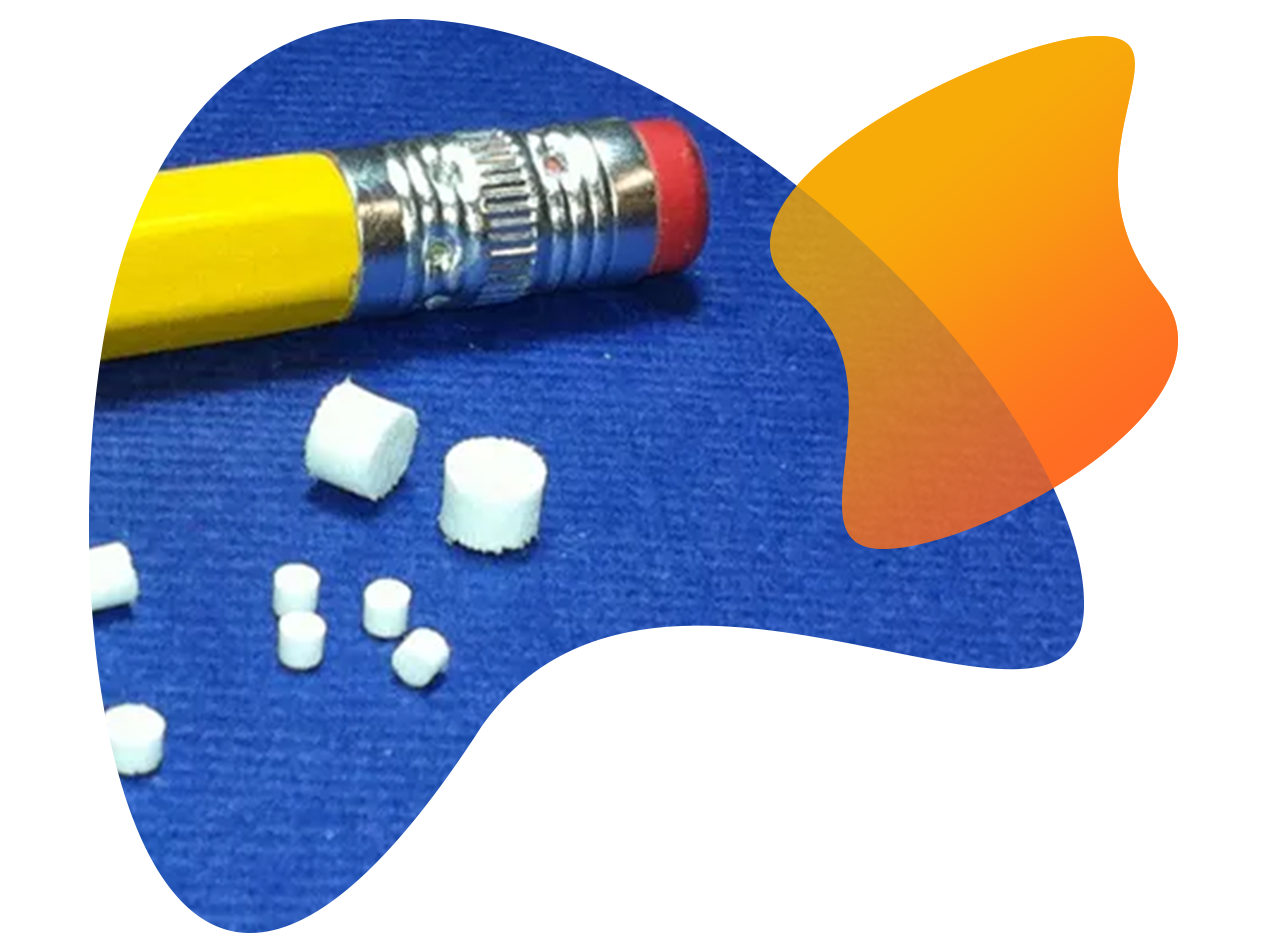Looking for oligos? Visit our new oligo and Stellaris dedicated platform at
oligos.biosearchtech.com

Now available from LGC Biosearch Technologies: PolyDesign™ proprietary fritted controlled pore glass (CPG)
Meet the growing market demand for high-quality oligos at nanomole or sub-nanomole scales with PolyFrits™.
Traditional particulate solid supports packed into columns were developed for oligo production at scales of 40 nanomoles or higher. PolyDesign technology addresses the shift to small-scale synthesis with low bed-volume frits that embed uniform amounts of solid support particles within an inert porous plastic matrix.
These frits provide a convenient means to handle small quantities of solid support using traditional synthesis methods and techniques.
PolyFrits technology is embedded in the future of high-throughput DNA and RNA oligonucleotide synthesis.

Advantages of PolyFrits
- Uniform distribution of active ingredient with < 10% frit-to-frit variation, often <5%
- Small bed volume, as low as 1 cubic millimetre, to reduce reagent consumption
- High loading capacity, up to 60 vol% active component
- Milder frit manufacturing conditions for better protection of the chemical functional groups on the solid support
How to order PolyFrits
Order PolyFrits fritted controlled pore glass configured to meet your specifications. We offer PolyFrits loose in bulk or pre-loaded in a variety of formats, including:
- Synthesis columns (either Luer or Pipette Type): Compatible with all major synthesizer platforms, including MerMade™, ABI, Expedite and Dr Oligo
- 384-Well Plate: A 384-well filter plate equipped, customisable up to 160 nmol (using 40 μmol/g CPG)
- Pipette Tips: Frits of various sizes, loaded into pipette tips in either 96 or 384 racks, or in bulk
As well as manufacturing a large variety of custom frits of different geometries, functions and applications, we can also pre-load frits into formats supplied by customers such as a 1536-well plate. Our experts will work with you to address unique customisation requests.
Enquire
How PolyFrit technology contributes to advancing therapeutic applications
Synthetic oligonucleotides are integral to modern molecular biology, facilitating diverse applications from chemical synthesis to the assembly of DNA oligonucleotides into genes, circuits and entire genomes using gene synthesis methods.3
The demand for DNA and RNA oligonucleotide synthesis continues to accelerate because of the increasing role of synthetic oligonucleotide-based therapeutics in healthcare.2 Synthetic RNA oligos, in particular, have garnered clinical interest due to the risks and inherent instability associated with non-modified RNA.1 Therapeutic oligonucleotides derived synthetically are demonstrating efficacy in treating a diverse range of diseases, with hundreds currently in clinical trials and numerous FDA-approved drugs already available.1,4
PolyFrits enable the use of solid support particles in a miniature format for oligonucleotide synthesis. This approach not only provides significant advantages for small-scale synthesis platforms where traditional packed columns are not economically viable but also continues to support the role of synthetic oligonucleotides in therapeutic and clinical applications.


This innovative technology supports a wide array of applications for synthetic oligonucleotides, including:
- Development of antisense gapmer, steric block, splice-switching oligonucleotides, and short interfering RNA drugs5
- Advancement of antagomirs (anti microRNAs), microRNA mimics, aptamers, DNA decoys, and DNAzymes5
- Facilitation of synthetic guide strands for CRISPR/Cas applications5
- Support for innate immunity-stimulating oligonucleotides5
- Exploration of DNA-targeting, triplex-forming oligonucleotides, and strand-invading oligonucleotides5
PolyDesign Acquired by LGC Biosearch Technologies
In 2023, LGC Biosearch Technologies acquired PolyDesign, a leading manufacturer and supplier of solid support embedded frits for both DNA and RNA oligonucleotide synthesis. PolyDesign's proprietary frit technology complements and enhances LGC's current product portfolio, supporting important areas of research and development such as Next Generation Sequencing (NGS), molecular diagnostics and therapeutic applications.
Dr. Hsing-Yeh Parker, the founder of PolyDesign and developer of the PolyFrit technology, has joined LGC’s Biosearch Technologies Research and Development team, contributing her expertise to drive further innovation.

PolyFrit technology Frequently Asked Questions
Most solid, chemically stable solid supports in powder form under frit manufacturing conditions can be embedded into a frit. The most common supports include controlled pore glass (CPG) and polystyrene. What determines whether or not a support can be incorporated into a frit is the chemical modification on the solid support. Historically, universal CPG has been the most commonly used fritted product in oligonucleotide synthesis, however we are constantly evolving our processes to include more and more of our myriad modified solid supports within PolyFrits.
Customers may also wish to provide us with their own support for incorporation into PolyFrits. Depending on the support type, we can give guidance on suitability and possibilities to meet your needs.
As the world leader in controlled pore glass (CPG) manufacture, we can supply you with several types of universal CPG support for DNA/RNA oligonucleotide synthesis, including the popular UnyLinker™ product.
Yes, this is possible and something we have successfully implemented before, though it is handled on a custom basis. We would be happy to discuss your specific purification requirements.
The amount of CPG support you can load in a frit depends on the size, the bulk properties of the support and the specific application. Typically, our frits are 50% solids and 50% pores. Of the total solid volume in the frits, the maximum CPG loading is about 40 to 60% volume.
No, there is no minimum loading requirement. If you're considering reducing the solid support loading in your frit to conserve synthesis reagents, it's advisable to reduce the overall frit volume. Extra bed volume can absorb reagents inefficiently, leading to less efficient use of these costly resources.
Depending on the physical properties of the solid support, we can manufacture frits as small as 0.5 mm. Alternatively, we may already have standard products that meet your requirements.
Reach out about PolyFrits technology
Use the form below to connect with experts on PolyFrits fritted controlled pore glass or to initiate an order.
References
Glazier, D. A., Liao, J., Roberts, B. L., Li, X., Yang, K., Stevens, C. M., & Tang, W. (2020). Chemical synthesis and biological application of modified oligonucleotides. Bioconjugate Chemistry, 31(5), 1213-1233.
Hammond, S. M., Aartsma‐Rus, A., Alves, S., Borgos, S. E., Buijsen, R. A., Collin, R. W., ... & Arechavala‐Gomeza, V. (2021). Delivery of oligonucleotide‐based therapeutics: challenges and opportunities. EMBO molecular medicine, 13(4), e13243.
Hughes, R. A., & Ellington, A. D. (2017). Synthetic DNA synthesis and assembly: putting the synthetic in synthetic biology. Cold Spring Harbor perspectives in biology, 9(1), a023812.
Molina, A. G., & Sanghvi, Y. S. (2019). Liquid‐Phase Oligonucleotide Synthesis: Past, Present, and Future Predictions. Current protocols in nucleic acid chemistry, 77(1), e82.
Smith, C. E., & Zain, R. (2019). Therapeutic oligonucleotides: state of the art. Annual review of pharmacology and toxicology, 59(1), 605-630.